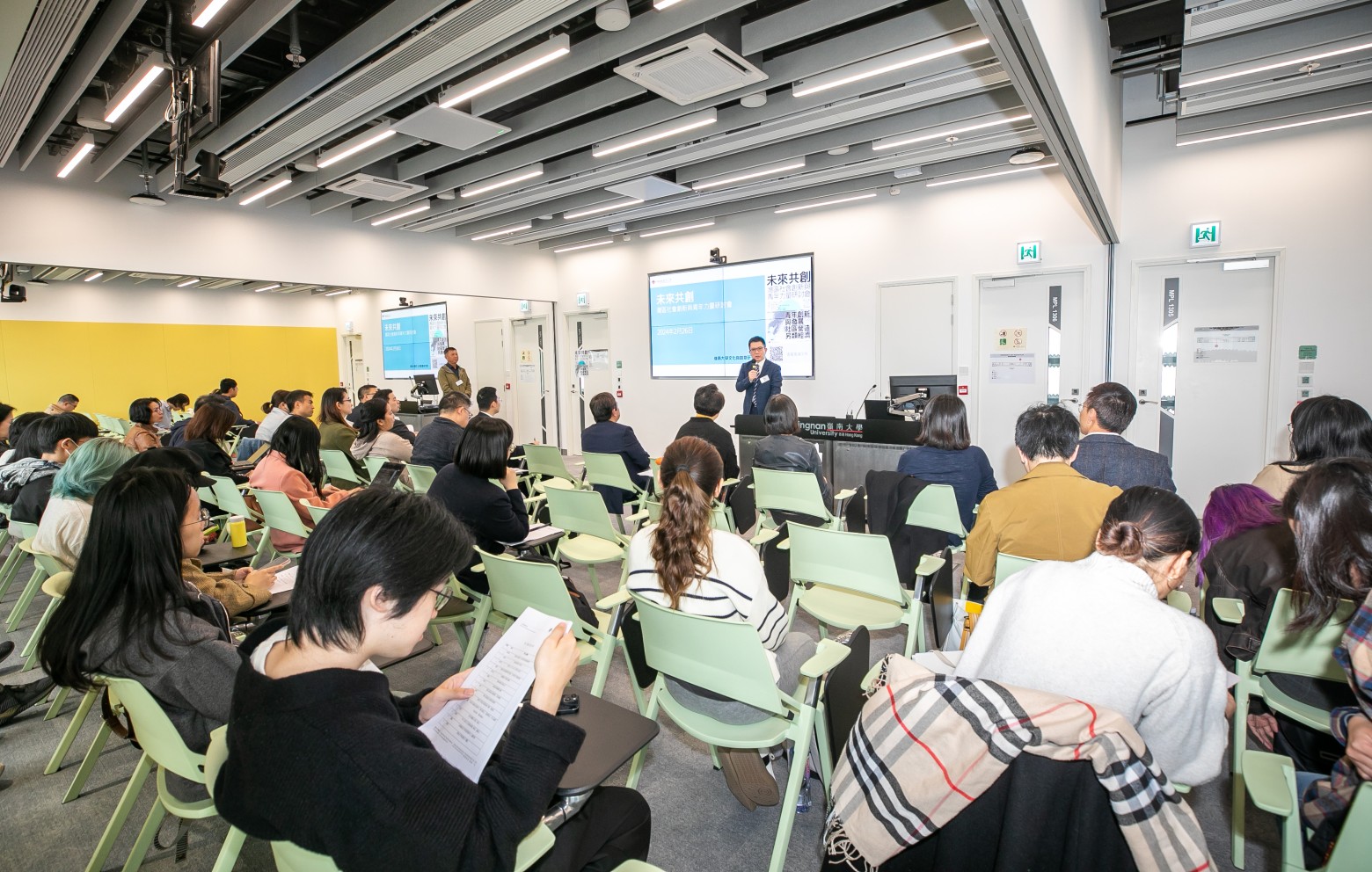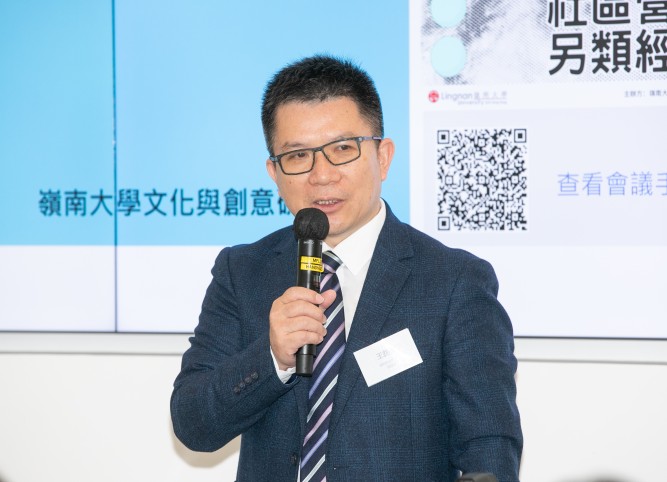Lingnan hosts Symposium on Social Innovation in the Greater Bay Area to prepare young generation for more innovation opportunities

The inaugural “Future Co-creation: Symposium on Social Innovation and Youth Power in the Greater Bay Area” gathers nearly a hundred veteran experts, innovators and practitioners from the Mainland and Hong Kong, and students and members of the public.
Lingnan University’s Creative and Cultural Innovation Research Institute held the “Future Co-creation: Symposium on Social Innovation and Youth Power in the Greater Bay Area” conference at the Lingnan@WestKowloon at the M+ Tower in the West Kowloon Cultural District on 26 February, exploring how social innovation can help youth create alternative economy and provide more opportunities for innovative entrepreneurship in Hong Kong. The conference attracted about 100 participants, including seasoned experts, innovators, and practitioners from the fields of youth development, community building, and alternative economies from Beijing, Shanghai, and Greater Bay Area cities including Guangzhou, Shenzhen, and Hong Kong, students and members of the public.

Mr Wang Jinxia, Deputy Director-General of the Qianhai Authority, hopes to further promote cooperation in the field of social innovation among youths and experts from the Greater Bay Area and Hong Kong through the Creative and Cultural Innovation Research Institute.
One of the highlights was the opportunity for participants to share their entrepreneurship successes through exploring alternative economies. The concept of "alternative economies" does not solely prioritise profit maximisation but emphasises the social fairness issues involved in understanding the production process and distribution of consumers benefits. For example, social enterprises that specialise in selling fair-trade coffee, tea, and other products; exploring collaborative opportunities with artisans from minority groups to introduce traditional crafts into urban consumer markets, and improving the livelihoods of villagers in remote and impoverished areas. Guest speakers also shared how they assist marginalised groups in re-employment, provide coffee training for the visually impaired, and obtain certification as a barista.
During the roundtable discussion, guest speakers discussed with students how these projects could be implemented in Hong Kong and explored opportunities for cooperation with social innovation activities in Mainland cities. Participants and guests engaged in in-depth discussions and exchanges, especially on youth development, community cohesion, social enterprise practices, and fair trade, to explore the potential for future collaborations.

